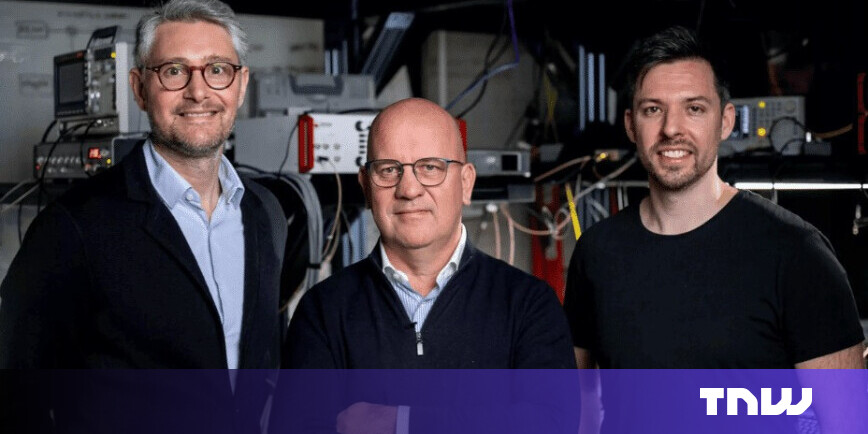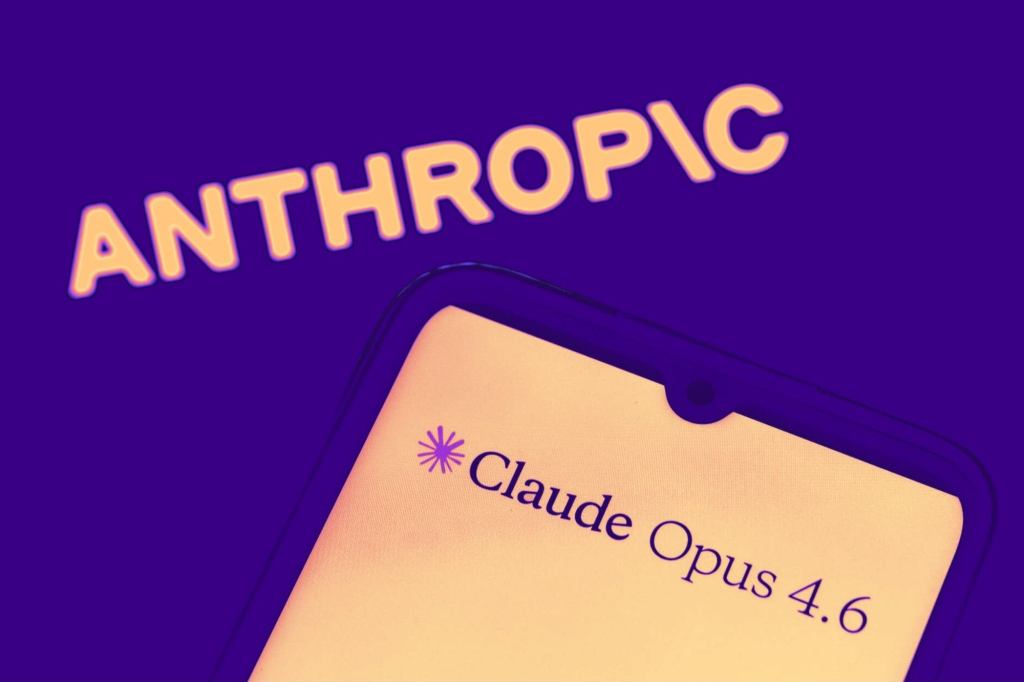Venture
Venture
[ follow ]
Venture
fromFortune
3 days agoDefy Ventures teaches entrepreneurship in prisons. It changed how I think about founders | Fortune
Entrepreneurship training in prisons humanizes incarcerated people by reframing them as entrepreneurs-in-training and teaching business skills applicable to legal enterprises.
fromBusiness Insider
3 days agoRead the memo: Tesla rival Lucid cuts 12% of its US workforce as EV winter takes hold
EV startup Lucid is cutting 12% of US employees, according to an email interim CEO Marc Winterhoff sent to unaffected employees on Friday, which Business Insider has seen. Winterhoff said the cuts would exclude hourly production employees in manufacturing, logistics, and quality. "This difficult but necessary decision was made to improve organisational effectiveness and optimize our resources as we continue on our path toward profitability," he wrote.
Venture
fromThe Motley Fool
3 days agoBraze Stock Down 59%, so Why Did One Fund Just Invest Another $16 Million in Shares? | The Motley Fool
According to an SEC filing dated February 17, 2026, Solel Partners LP purchased an additional 526,300 shares of Braze in the fourth quarter. The estimated transaction value was $15.59 million, calculated using the average closing price during the quarter. The fund ended the period with 1,272,200 shares, bringing the total position value to $43.62 million at quarter-end. The net position change, including price movement, was $22.41 million.
Venture
fromwww.housingwire.com
3 days agoSaluda Grade hires Patrick Lo as co-CIO
Expanding our ABF platform beyond residential and commercial real estate is a natural and important next step for Saluda Grade, Ryan Craft, the company's founder and CEO, said in a statement. Patrick has a strong track record of building institutional investment platforms across multiple sectors. His experience and leadership will help us broaden our reach while maintaining the same disciplined underwriting and structuring approach that has been central to our team and success so far.
Venture
fromBusiness Insider
4 days agoI quit my $192K Microsoft job to build a startup. Weeks later, almost everything I owned was stolen.
I resigned from Microsoft in September 2025. Less than a month later, I lost almost everything I owned. During my move from New York City to my hometown of Toronto, the trailer transporting my belongings was stolen in the middle of the night. The trailer was eventually recovered, but none of my belongings were. While resigning from Microsoft set me down this unfortunate path, I believe leaving Big Tech was the right move for me.
Venture
Venture
fromExchangewire
4 days agoBedrock Platform Closes Seed Extension Round Led by FirstPartyCapital, with Aperiam Ventures Joining as Co-Investor
Bedrock Platform closed a seed extension led by First Party Capital with Aperiam Ventures joining, securing capital and expertise to accelerate product development and US expansion.
Venture
fromeLearning Industry
4 days agoPreparing For Acquisition: How To Make Your Learning Tech Company Investor-Ready
Start acquisition readiness years before a transaction by adopting investor-grade GAAP financials, governance, predictable revenue, and scalable operations to increase valuation and negotiation strength.
fromWIRED
4 days agoCode Metal Raises $125 Million to Rewrite the Defense Industry's Code With AI
Code Metal, a Boston-based startup that uses AI to write code and translate it into other programming languages, just closed a $125 million Series B funding round from new and existing investors. The news comes just a few months after the startup raised $36 million in series A financing led by Accel. Code Metal is part of a new wave of startups aiming to modernize the tech industry by using AI to generate code and translate it across programming languages.
Venture
Venture
fromFortune
4 days agoAmerican Express and Visa alumni raise $4 million for Rhythmic, which partners with brands to provide financial products for their customers | Fortune
Rhythmic partners with consumer brands to embed stablecoin-powered stored-value accounts, payments, co-branded cards, and rewards to broaden mainstream stablecoin adoption.
Venture
fromFortune
4 days ago'I had to take 60 meetings': Jeff Bezos says 'the hardest thing I've ever done' was raising the first million dollars of seed capital for Amazon | Fortune
Jeff Bezos endured about 60 investor meetings, receiving roughly 40 rejections, to raise early seed capital for Amazon, securing around 20 investors.
fromBitcoin Magazine
4 days agoVoltage Introduces Credit Line For Bitcoin Settlement
Voltage, a provider of Bitcoin infrastructure, today launched Voltage Credit, a revolving line of credit designed to enable businesses to send payments over Bitcoin rails with instant settlement and settle entirely in U.S. dollars, according to a note shared with Bitcoin Magazine. Voltage Credit allows enterprises to draw from a credit line to send payments that clear in seconds, bypassing the delays associated with traditional settlement systems.
Venture
fromFortune
6 days agoUnicorn CEO on the disaster of $1.3 trillion of credit card debt, an all-time high: His fintech wouldn't exist if 'banks had done a better job' | Fortune
Laplanche, who was also the co-founder of LendingClub before leading Upgrade to a $7.3 billion valuation, was unsparing in a recent interview with Fortune. The fintech sector itself, he claimed, "would not even exist if, frankly, banks had done a better job really delighting their customers with product innovation that moves the needle," Laplanche said, arguing that the industry's reliance on "nickel and dime" fees and "unpredictable" costs created the very void that he's spent his whole career filling.
Venture
Venture
fromVariety
6 days agoDolphin Entertainment Looks to Expand Online Capital Raising for Creators and Influencers Through Partnership With DealMaker
Dolphin Entertainment partnered with DealMaker to enable celebrities and influencers to raise SEC-compliant public capital for consumer and lifestyle brand launches.
fromFortune
6 days agoYouTuber Logan Paul cashes in $16.5 million for his Pokemon card. It's vindication for the 'armchair quarterbacks yelling from the sidelines,' he says | Fortune
The YouTuber turned social media mogul and entrepreneur turned heads in 2022 when he paid $5.3 million for a single Pokémon card-an ultra-rare Pikachu Illustrator-making it the most expensive ever sold at a private sale. But Paul didn't stash it away in a vault. He wore the card in a diamond-encrusted chain to major events, including into the WWE wrestling ring, turning a niche collectible into a piece of performance art-and personal branding. On Sunday night, the gamble paid off.
Venture
fromEntrepreneur
6 days agoThe Smart Spending Framework Every Founder Needs
Every purchase you make as an entrepreneur is an investment decision, whether it's for a one-time $500 software subscription or a $500,000 equipment lease. What differentiates the successful founders from the struggling ones is how they approach each decision. Casual spenders leak margins over time, while founders who spend consciously build sustainable, profitable businesses. The key is learning to frame everyday spending through an investor's lens.
Venture
Venture
fromFortune
6 days agoExclusive: Crypto venture firm Dragonfly closes $650 million fourth fund-even as blockchain VCs face 'mass extinction' | Fortune
Dragonfly Capital launched a $650 million fourth crypto fund after successful investments and survived multiple industry crises by strategic leadership and sector pivots.
Venture
fromBenzinga
6 days agoPalantir's Moat Is 'Obstruction of Data Transfer' Michael Burry Says - Palantir Technologies (NASDAQ:PLTR)
Palantir's competitive advantage is vendor lock-in achieved by obstructing customers' access to migrated analytical data rather than superior analytics or interface.
Venture
fromSilicon Canals
1 week agoDIC Enters into a Partnership with Switzerland-Based Emerald to Accelerate Business Creation in the Physical AI Domain - Silicon Canals
DIC established a $62 million investment portfolio and will open a Zurich-based investment subsidiary to fund Physical AI startups globally in partnership with Emerald Technology Ventures.
fromFortune
1 week agoI'm the CEO of the 1980s most viral restaurant, Tony Roma's. We're still thriving but viral brands keep turning into pumpkins | Fortune
This is becoming a familiar pattern. Brands explode onto social media with fairy-tale success. Then the clock strikes midnight, and they are gone. I run Tony Roma's, a 54-year-old brand ranked No. 2 in Newsweek's Excellence Index, after Starbucks. Our unit count is not what it was in the 1980s, but we continue to serve customers profitably across five continents. Here's the tension: Social media has genuinely democratized entrepreneurship.
Venture
Venture
fromFortune
1 week agoJake Paul may have gotten his jaw broken on Netflix, but he and his $65 million fortune are laughing their way into Silicon Valley boardrooms | Fortune
Jake Paul's licensing deal with OpenAI's Sora drove massive AI-generated exposure, generating over one billion impressions and benefiting his Anti Fund's portfolio company.
fromFortune
1 week agoMarc Andreessen made a dire software prediction 15 years ago. Now it's happening in a way nobody imagined | Fortune
On August 20, 2011, legendary venture capitalist Marc Andreessen published a blog post-and an accompanying essay in The Wall Street Journal-that would become the sacred texts of the Silicon Valley bull run. Titled "Why Software Is Eating The World," he argued that the global economy was undergoing a "dramatic and broad technological and economic shift" and that software companies were poised to take over large swathes of the industry.
Venture
Venture
fromBusiness Insider
1 week agoCybersecurity CEO says we're in an AI bubble. Here's what he looks for when investing in a startup.
An AI investment bubble exists, yet selective investment continues in reasonably priced startups with products that have a clear hook, platform potential, and monetization path.
fromEntrepreneur
1 week agoHow to Grow Your Business With Purpose - Not Just Revenue
Business growth is valuable, but too often entrepreneurs treat it as a final destination. In reality, expansion is just one part of a long-term success plan, unfolding through many smaller milestones along the journey of building a business. Here are three ways you can expertly use expansion to build on success, along with examples of companies that have handled expansion as a positive part of the success process.
Venture
fromPsychology Today
1 week agoFostering Entrepreneurial Passion in Business Students
In today's rapidly evolving business landscape, the need for innovation and entrepreneurial spirit has never been more critical. As we prepare the next generation of business leaders, fostering entrepreneurial passion among students is essential. Entrepreneurial passion not only drives individuals to pursue new ventures but also enhances their resilience and creativity, vital traits for success in any field. This article explores effective strategies for educators and institutions to cultivate entrepreneurial passion in business students, drawing insights from recent research on the subject.
Venture
Venture
fromFortune
1 week agoExclusive: Seligman Ventures debuts with $500 million and a new model for the blurring line between public and private markets | Fortune
AI-driven market upheaval is shrinking public markets, inflating private-market activity, and prompting Seligman to launch a $500 million AI-focused venture fund.
Venture
fromBusiness Insider
1 week agoThese founders raised $10 million to get corporate America into vibe coding. Read their pitch deck.
Vybe raised $10 million to provide secure, enterprise-grade vibe-coding that connects internal data systems and enables teams to build, remix, and manage business apps.
fromTearsheet
1 week agoThe 'discovery' problem in embedded finance - and how OMB Bank found the right fintech partner - Tearsheet
For Missouri-based community bank OMB Bank, finding the right fintech partner used to be a slow, manual process. Executive Vice President and Chief of Staff Jessica Sims recalls working from static PDFs of the bank's preferences, followed by endless back-and-forth emails whenever a fintech expressed interest. The process worked, but painfully slowly, and promising opportunities often slipped through the cracks.
Venture
fromSecurityWeek
1 week agoNucleus Raises $20 Million for Exposure Management
Integrating security and asset data from over 200 connectors, the platform unifies business context and AI-based intelligence into a single pane, offering visibility and enabling risk prioritization and reduction. Nucleus relies on automation to enhance customers' vulnerability management programs. It correlates flaws with real-world threat data from multiple sources, normalizes it, maps assets to specific teams, and uses workflows for faster remediation. According to Nucleus, its vendor-agnostic approach covers exposure across tools, users, environments, and business units, unifies context, and enables coordinated action.
Venture
Venture
fromTechCrunch
1 week agoFormer Founders Fund VC Sam Blond launches AI sales startup to upend Salesforce | TechCrunch
Monaco offers an AI-native sales platform that combines AI agents with experienced human sales experts, providing CRM, prospect database, and automated outreach for early-stage startups.
fromBusiness Matters
1 week agoInvestors back MyCredit's technology-led approach to digital lending expansion
Investors have committed new capital to fintech company MyCredit, backing its strategy of scaling technology-driven credit platforms rather than a conventional lending operation. The investment reflects a broader shift in fintech funding toward platforms where software, data infrastructure and AI form the primary drivers of innovation, growth, enabling companies to expand across markets without proportional increases in staffing or operational complexity.
Venture
Venture
fromLondon Business News | Londonlovesbusiness.com
1 week agoVenture Capital Trust flows up sharply as tax year end approaches - London Business News | Londonlovesbusiness.com
Investors have poured £568m into Venture Capital Trusts this tax year, driven by a planned reduction in VCT tax relief from 30% to 20%.
[ Load more ]











